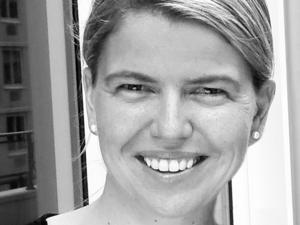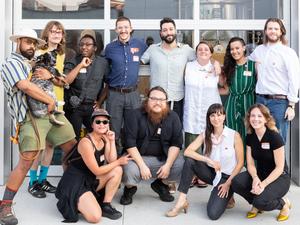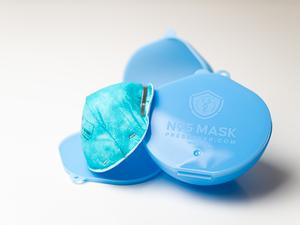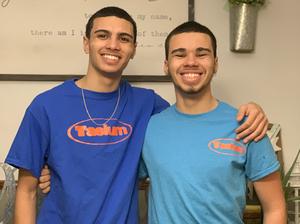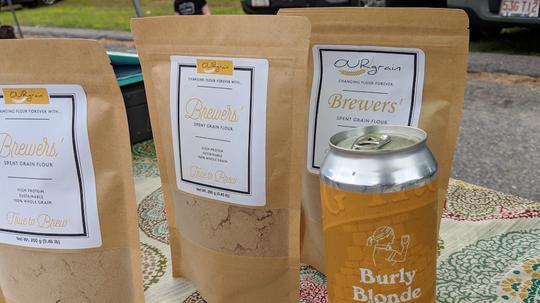
Brewers in the U.S. are disposing millions of gallons of grain — in fact, there is enough grain leftover each year to fill up the Boston Harbor 10 times over.
Having seen this, a group of Johnson and Wales graduates have found a way not only to save that “brewer-spent grain,” but also to repurpose it into something delicious.
OURgrain is a company that takes leftover grain from the beer industry and recycles it into nutritious, Betty Crocker-style flour and baking mixes.
“With the environmental issue this grain causes, it’s an unseen problem, so a lot of what we are doing is education.”
Compared to regular white flour, the mixes have 12 times the fiber, eight times the protein and just one-third the carbohydrates. And believe it or not, it’s actually the brewing process that makes the grain so healthy.
“It’s really cool because beer is not super healthy, but that’s where most of the carbohydrates from the grain goes — and that is why there are only one-third of the carbs in OURgrain,” Jessie Pulling, CEO and co-founder of the company, told Rhode Island Inno. “It’s really kind of crazy and sad to think we throw away this much grain. That’s bad for the environment, but also you are throwing away the nutritious part of the grain, so you may as well eat it and it tastes great.”
Pulling is one of seven OURgrain co-founders: Samantha Gannon, Ray Holloway, Victor Eng, Sam Burgess, Nicole Gresko and Natasha Daniels. Holloway, a recreational beer brewer, first stumbled upon the concept in college when he realized how much grain was leftover just from the batches he made in his basement.
After recruiting his six other co-founders, the team would go on to win a pitch competition in Puerto Rico and participate in other prestigious accelerators and programs such as MassChallenge.
OURgrain has established a network of brewers that they get their grain from, with Norton, Mass.-based Bog Island Brewing being the biggest.
The team goes to the facilities toward the end of a brew, collects the spent grain themselves and then haul it back to the Hope and Main kitchen facility in Warren, R.I., where they dry and mill it and turn it into flour mixes.
The company makes a variety of different snacks and mixes from the grain such as pretzels, flatbreads, scones (and even soaps); OURgrains just recently released its pumpkin bread mix.
Pulling said the company has been making retail and wholesale partnerships, selling in farmers markets, online and has aspirations to get into artisan grocery stores and even maybe Whole Foods down the line.
The company is also planning to partner with brewers to make tasty snacks and treats out of their beer.
OURgrain will soon be piloting a partnership with Bog Island Brewing, where they would make pretzels, chips or scones out of Bog Island’s seasonal smoke pilsner, and then sell those in Bog Island’s tap room.
If this goes well, Pulling said she hopes to make similar partnerships with other beer companies in the area like Sam Adams or Harpoon.
In addition to selling its products, OURgrain is hoping to make the process by which they create their products even more efficient. Right now, according to Pulling, when the company gets the grain, it is 80 percent water and takes an extremely long time to dry, which in itself is bad for environment.
The OURgrain team is currently in the midst of hiring a team of engineers to help create a revolutionary piece of drying equipment that could speed up this process.
The company would then hope to patent this equipment and become a service provider for breweries disposing of leftover grain. Once the company achieves this, it also would like to produce cellulose from the grain, which could be sold to companies who could use it to make biopaper, bioplastic and biofuel.
“A lot of people don’t know this is a problem because it causes greenhouse gases when grain is thrown away,” said Pulling. “With the environmental issue this grain causes, it’s an unseen problem, so a lot of what we are doing is education.”
